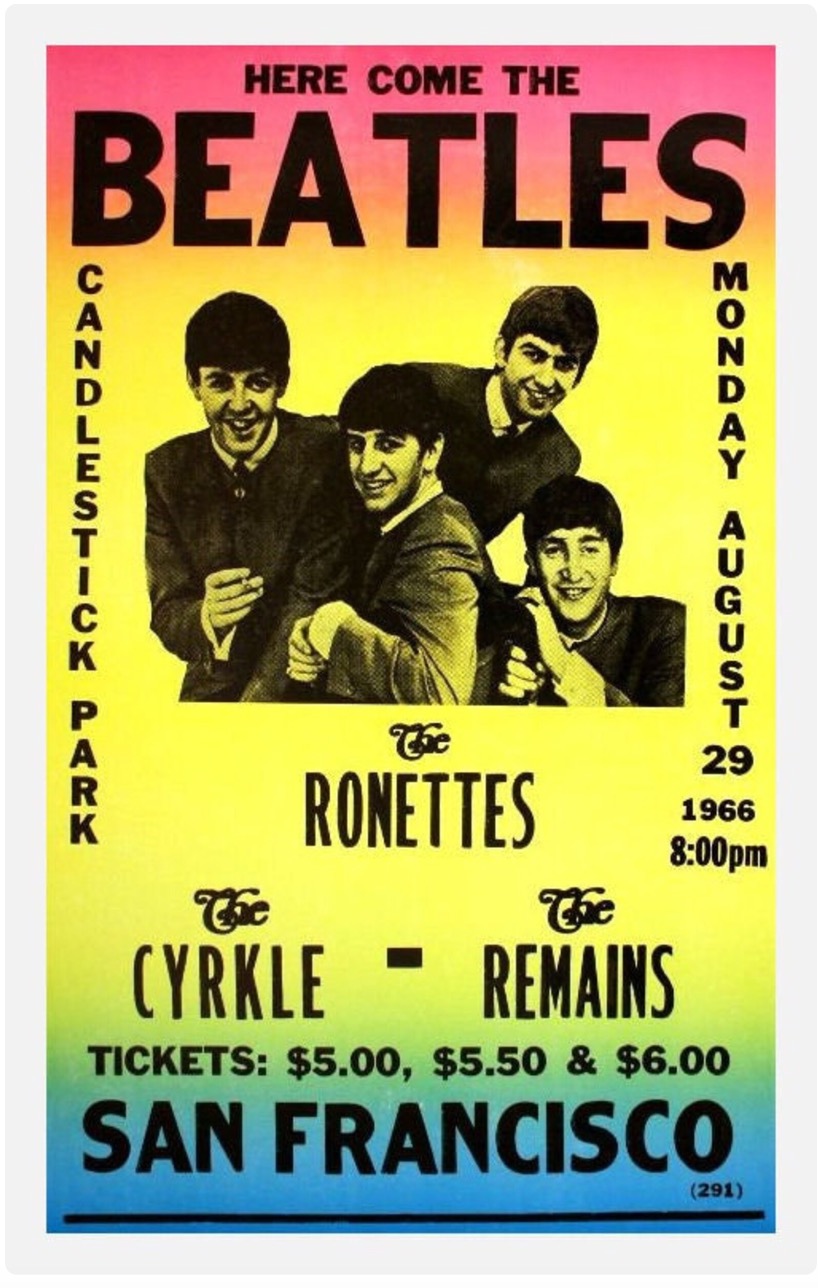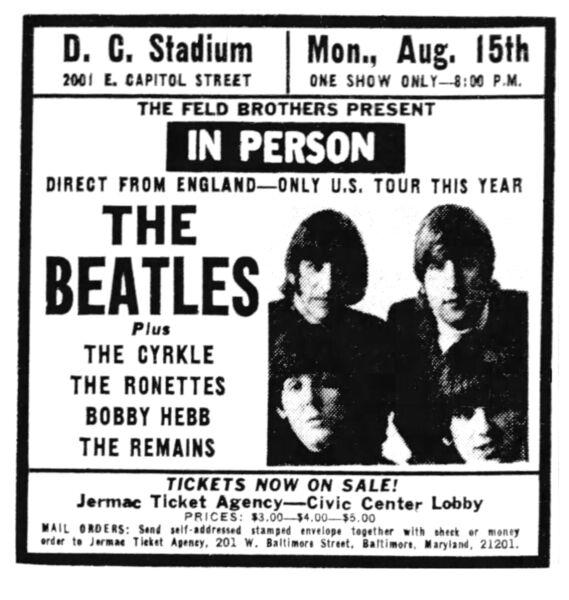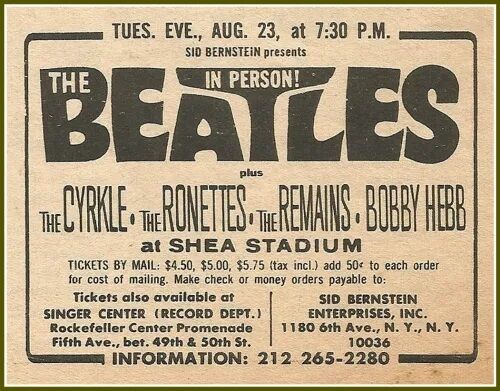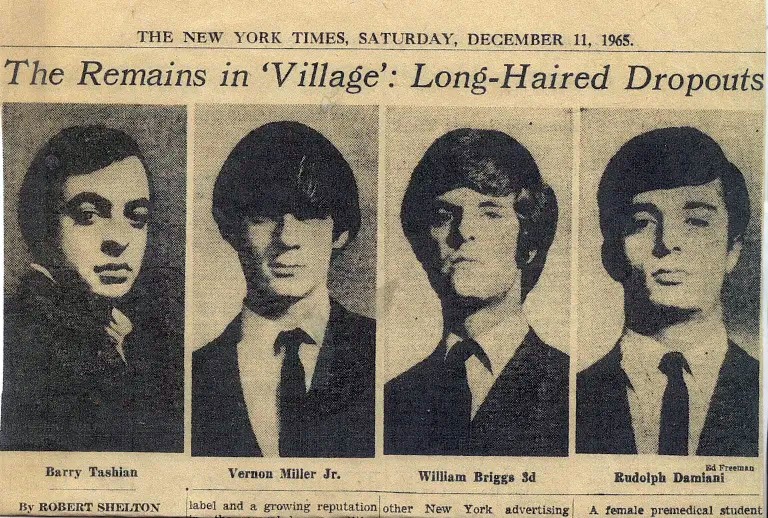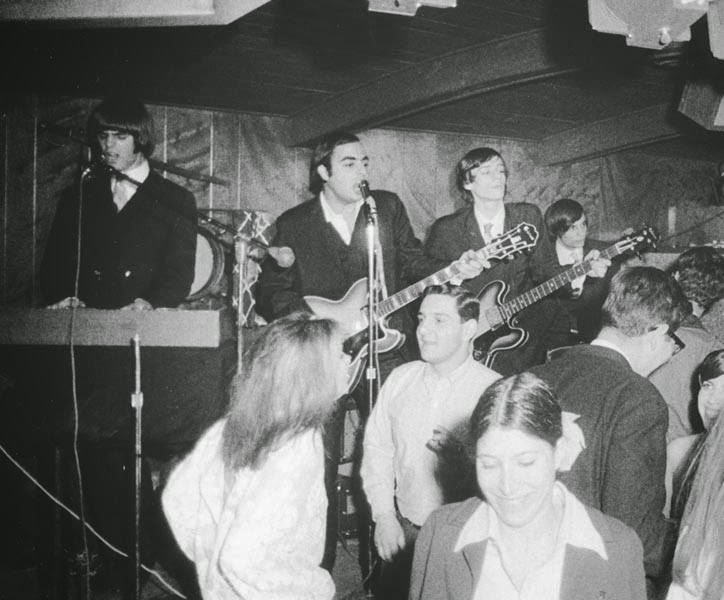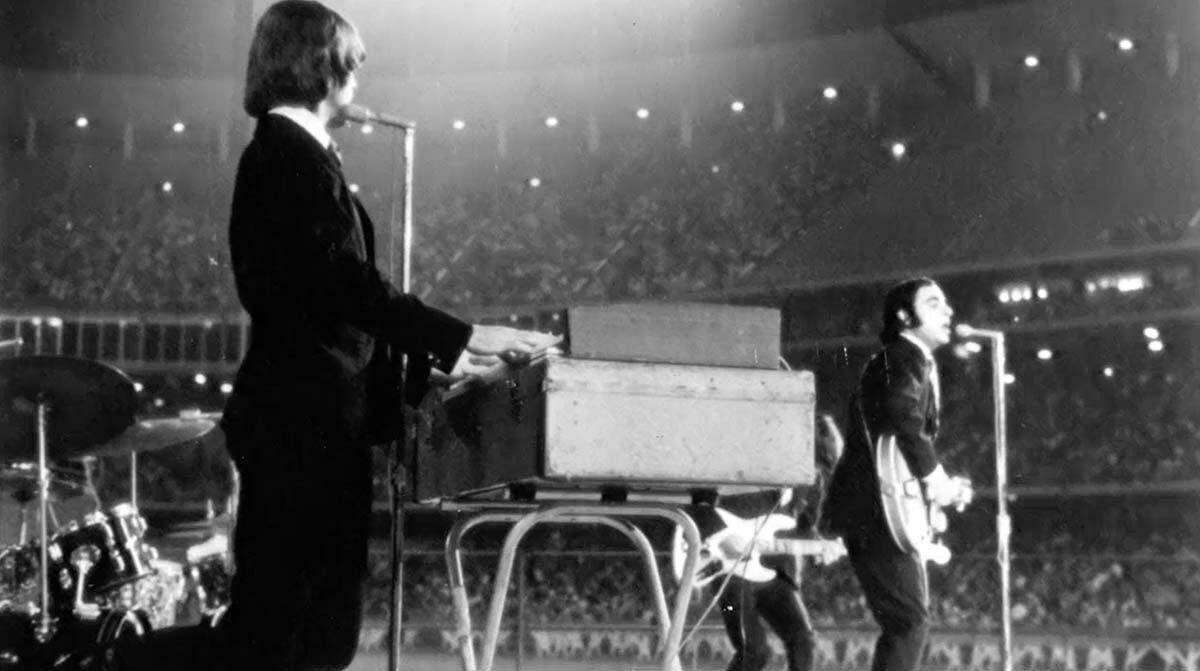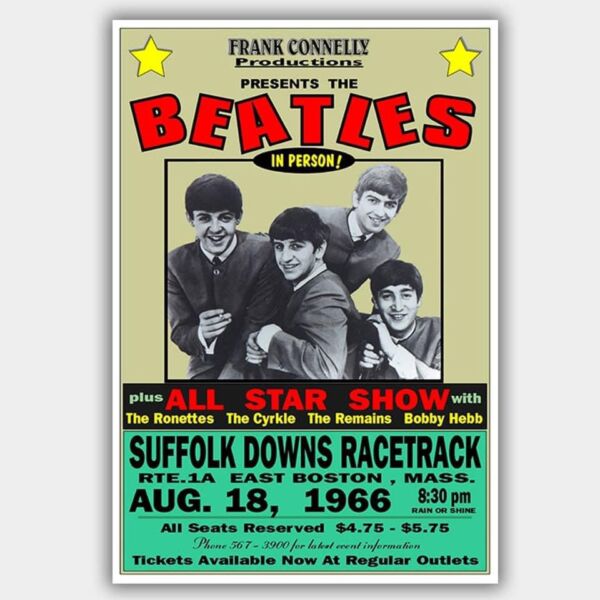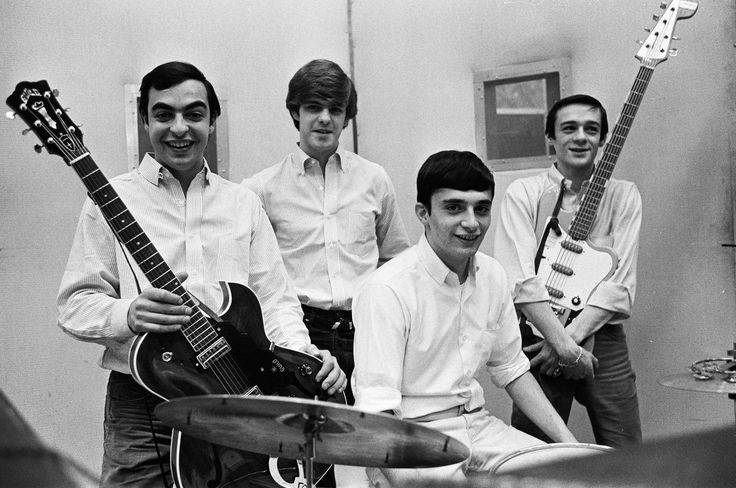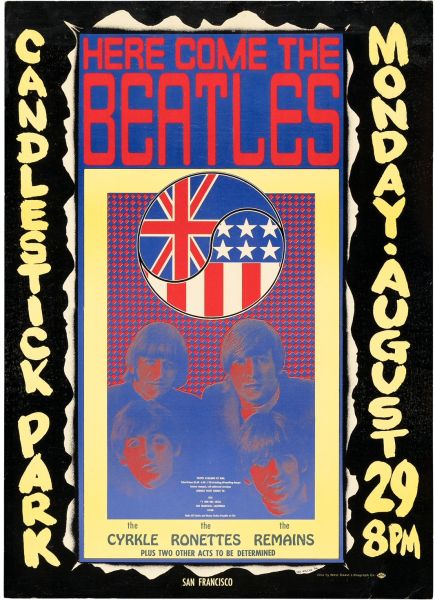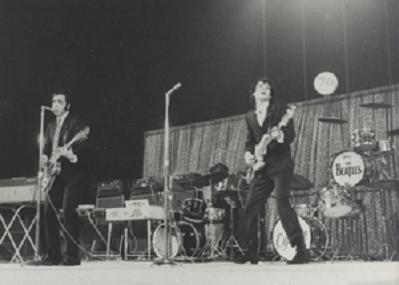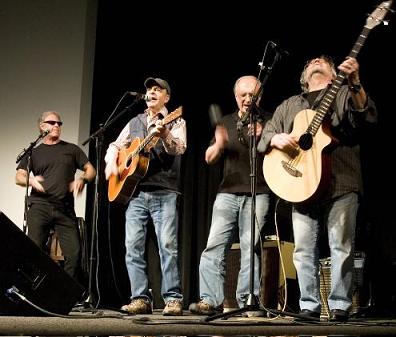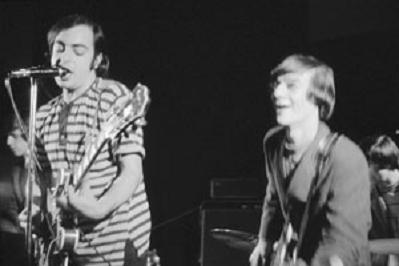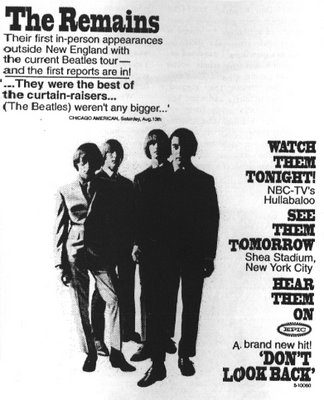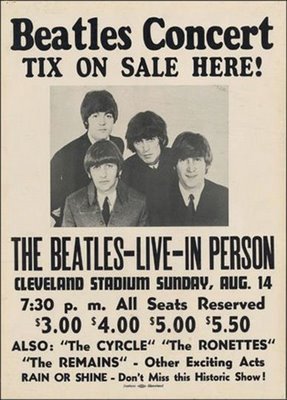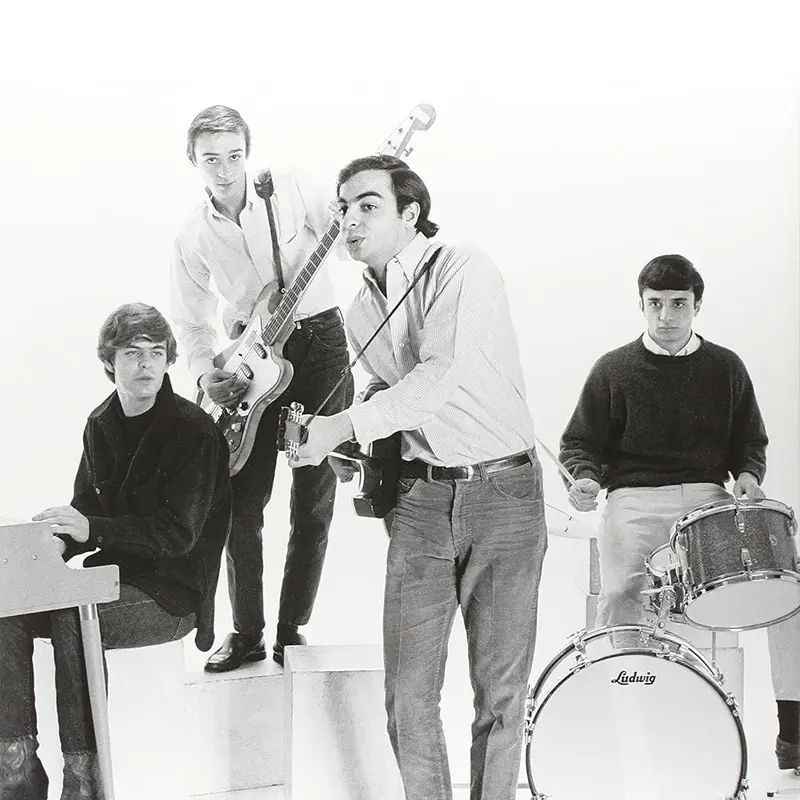Opening For the Beatles, 1966
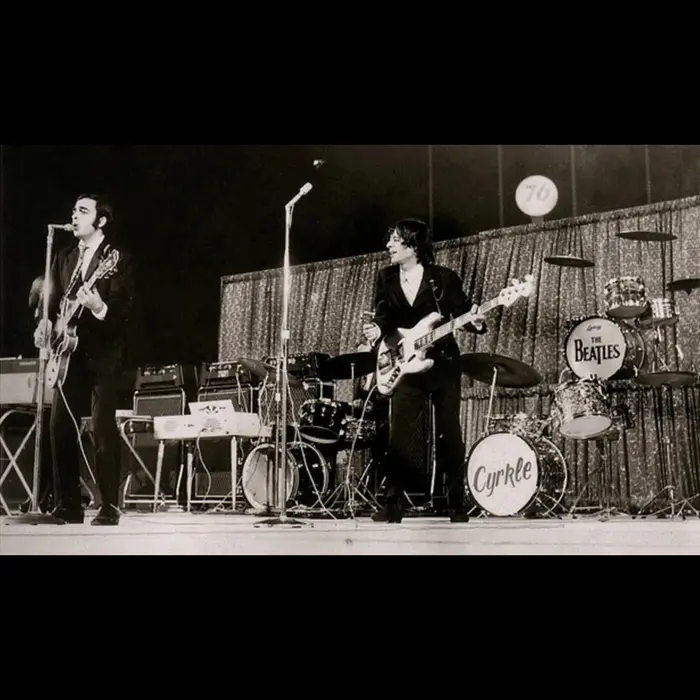
We said we’d never do it again. That was it. I mean, we’d already opened for The Kingsmen, Chuck Berry, Bo Diddley, The Dave Clark Five, The Isley Brothers, Gary Lewis & The Playboys, The Shirelles and The Ronettes, to name just a few. So, we had a new band rule: “No more opening for anybody. We’re The Remains and from now on we’re going to headline our own shows.”
We stuck to that plan until the late spring of 1966, when Bob Bonus of General Artists Corporation approached us and said, “How would you boys like to be the opening act for The Beatles’ tour this coming summer?” Well, it’s been said that rules were made to be broken and we immediately said “yes.”
A couple of months later, we were on the road with The Beatles, sharing their chartered jet and opening every show on what became their final US tour, an experience that was both exciting and humbling. There we were, hanging out with the biggest act in rock history, listening to sitar music with George, talking about guitars with John, watching TV with Ringo, standing on the tarmac with Paul while the plane was being refueled and talking about record production with George Martin.
But living the dream from the inside is different than the view from the outside. A grueling traveling and performing schedule left little time for sleep or seeing any of the sights in the cities where we played. For the most part, our world was the inside of the airplane, the stadiums that we played and our hotel rooms. As the initial thrill began to wear off and my personal vision became clearer, two things became very evident to me.
First, the life of fame and fortune was taking its toll on The Beatles, collectively and individually. They’d become old souls in young bodies. Their success, while providing them with all the material gains anyone could ever wish for, was also depriving them of the freedom to live lives on their own terms or just take a walk down to the local pub for a beer and a burger. Each was striving to develop their personal identity outside the confines of the group. They were growing in different directions musically and spiritually. They were writing music that really deserved focused listening, which was never going to happen through the din of screaming fans in a baseball stadium. The writing on the wall indicated that a change was imminent.
Secondly, The Remains would never do what The Beatles had done. There was only one number one and they were it. That was a big lesson in humility, teaching us to appreciate what you are, what you do and what you have simply for what it is. And even if we could have done what they did, my newly acquired dose of insight would refer me back to the previous paragraph.
After that tour, The Remains broke up and we each went our separate ways. But the bond between the four original bandmates never broke. Every so often our recordings would be re-released and/or we would get together and play. It was uncanny how we’d always pick up exactly where we left off the last time we were together. We were, and continue to be, very closely connected musically and spiritually. Perhaps the fact that we never achieved the pinnacle of fame and fortune gave us the gift of an everlasting appreciation for life and for each other. Perhaps our disbanding after The Beatles tour is the reason that we’re all still alive and physically and mentally able to keep playing together decades after the formation of The Remains.
Very, very few groups from the distant past are still intact with the original band members living, let alone speaking to each other and able to perform. To this day, all the guys in The Remains are close friends with a sincere appreciation for each other as musicians and as human beings. There’s no pressure on any of us to be successful or “make it.” We still do this because we still love to do this, and there are a lot of people out there (old and young) who still want to hear and see us. That’s all a gift, with the understanding that nothing ever really lasts forever; it’s all on loan. We’re extremely grateful for the opportunity to share our music with each other and with anyone else who wants to listen.
Rock and roll bands come and go, of course. But I like to think that The Remains might be an exception to the rule.
(by Vern Miller)
Vern Miller was the bassist for The Remains.
Rudolph “Chip” Damiani died February 23, 2014 of a cerebral hemorrhage.
Bill Briggs (keyboardist) died March 26, 2024 of multiple health issues.

